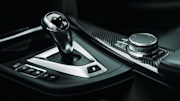What is car insurance excess?
Manual vs automatic cars
What’s the best option?

If you’re learning to drive or thinking about getting a new car, one of the decisions you'll need to make is whether to go manual or automatic.
Most cars in the UK are manual, but there are pros and cons to consider when choosing which is right for you.
While automatic cars take care of the gear changes, manual vehicles require you to make decisions about what’s right for the speed and road conditions, switching gears with the clutch and gearstick.
Are manual cars best?
Many drivers are keen to stick with manual vehicles, arguing that they are cheaper to run and more fun to drive. Certainly, having to select the most appropriate gear does give you greater control over the vehicle, which can make for a more engaging driving experience.
Manual cars can also be nippier, as the vehicle responds almost instantly to your gear change. However, technology in newer automatics means this difference is disappearing fast.
Are manuals cheaper than automatics?
Cost is another argument in favour of manuals. As well as being cheaper to buy, their gears tend to require less maintenance. If something does go wrong, it’s usually cheaper to fix on a manual because the gearbox is less complex than in an automatic.
There are however some negatives with manual cars. As you control the gears, there’s a risk of error. Likewise, changing gears can be one of the trickier things to master when you’re learning to drive.
There are also some potential safety concerns as a gear change requires you to take your hand off the steering wheel. And, if you are driving around town, all those gear changes can really take their toll on your leg muscles.
Should I go for an automatic car?
With no gear changes to worry about, automatics are certainly easier to drive and more learner drivers are recognising this. Government figures show the number of tests taken in automatics increased from around 100,000 in 2014/15 to nearly 325,000 in 2022/23.
An automatic car can also be a good option if you have mobility issues, where a gear change may aggravate a back problem or leg pain.
What are the disadvantages of automatic cars?
Automatics are often more expensive to buy and repair than manual cars. There’s also a catch should you decide to learn in an automatic. If you’ve only got a licence for automatics, you won’t be able to get behind the wheel of a manual car unless you take another test to upgrade your licence.
This might not be such an issue when you’re at home but it could prove tricky if you want to hire a car on holiday. In Europe, where manuals are the norm, you might struggle to hire an automatic.
So many pros and cons – how do I pick?
Your choice is likely to come down to a variety of factors. If most of your driving is around town, ditching the gear changes in an automatic might appeal. If you want a cheaper car, a manual may be your best option.
It’s also worth thinking about how vehicle technology is evolving. As more of us switch to electric vehicles, none of which have gearboxes, we’ll all be going automatic in the future.
Whether you drive an automatic or a manual, Co-op Insurance can help you get the right insurance for your car. Visit our car insurance page to get a quote.
Exclusive offers for Co-op Members

Car insurance
Exclusive member price on car insurance.
Your discount is applied if your details match those on our membership database and is not available on add ons.





